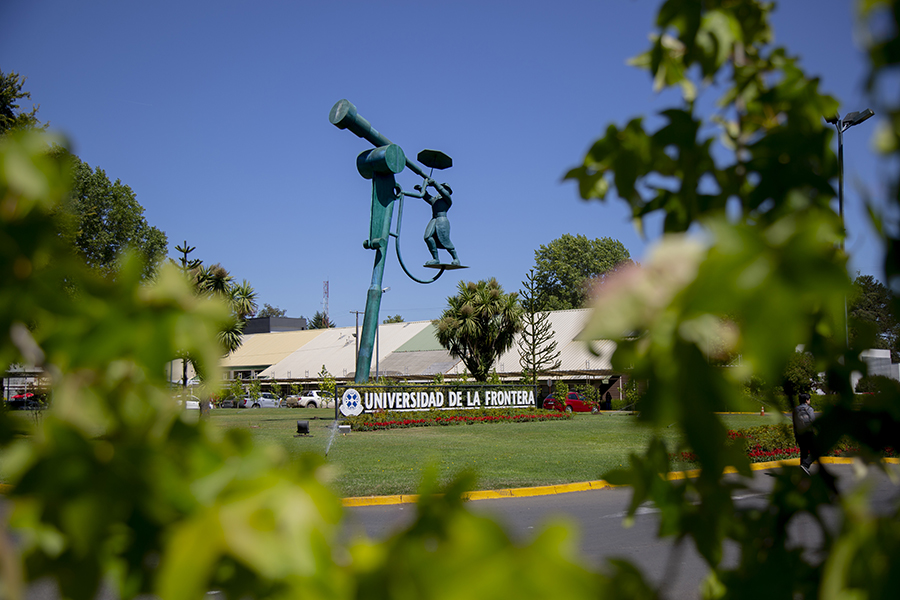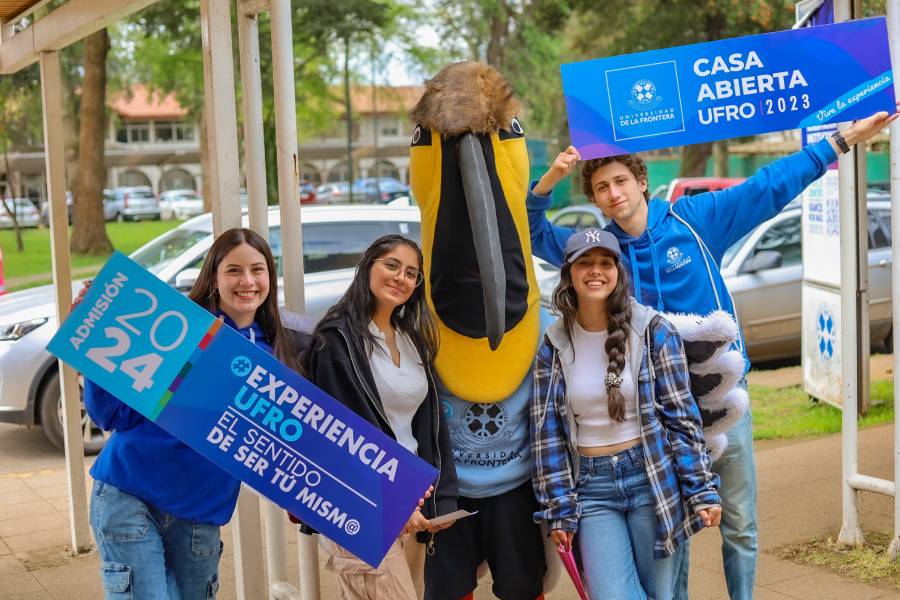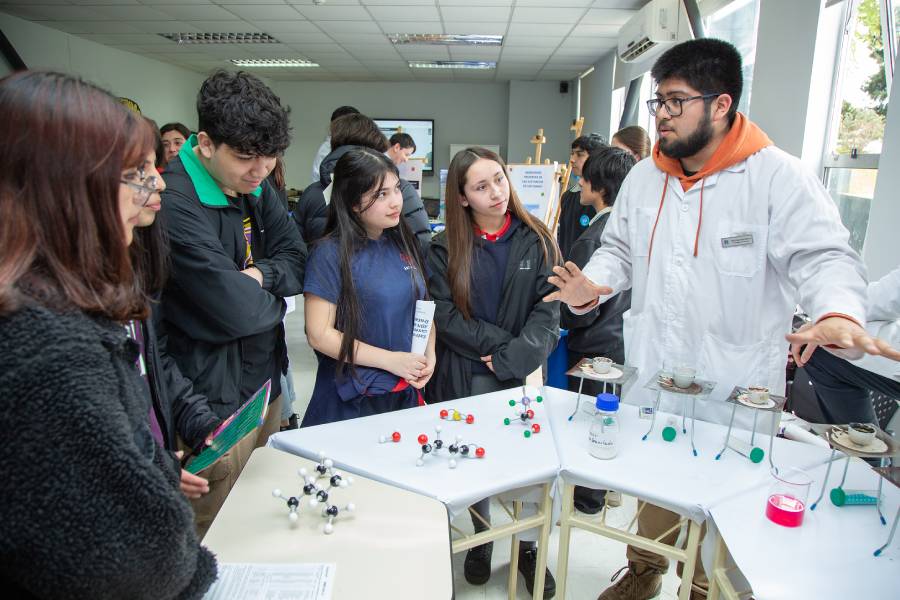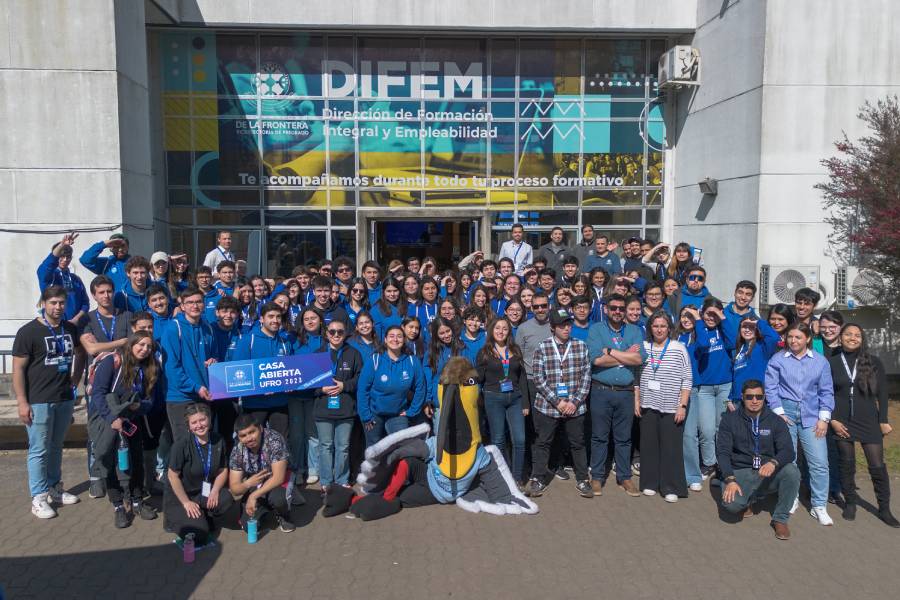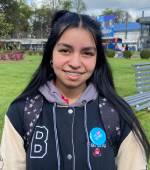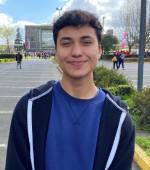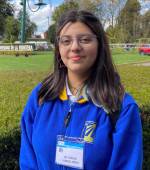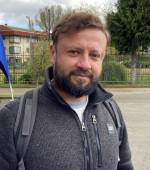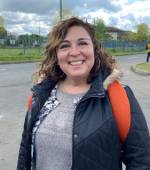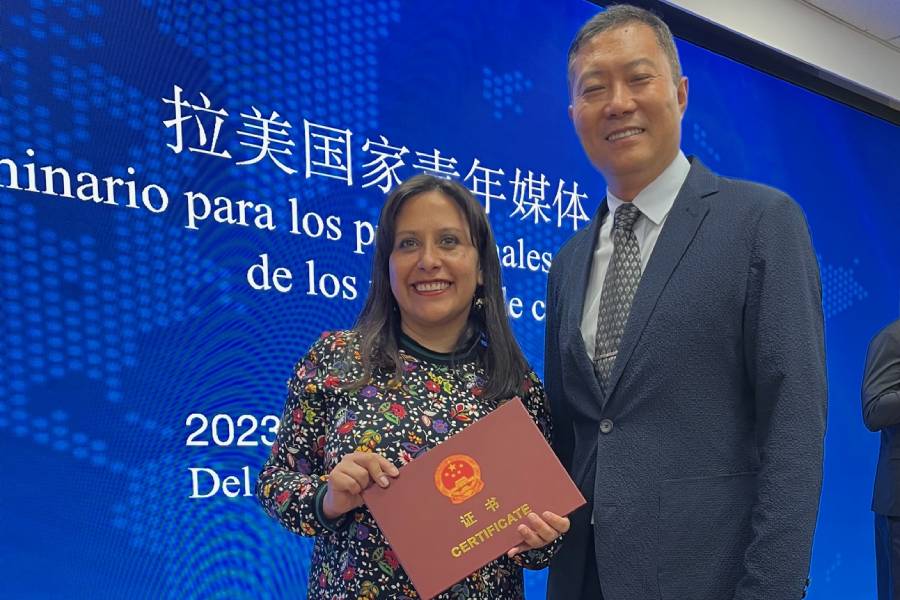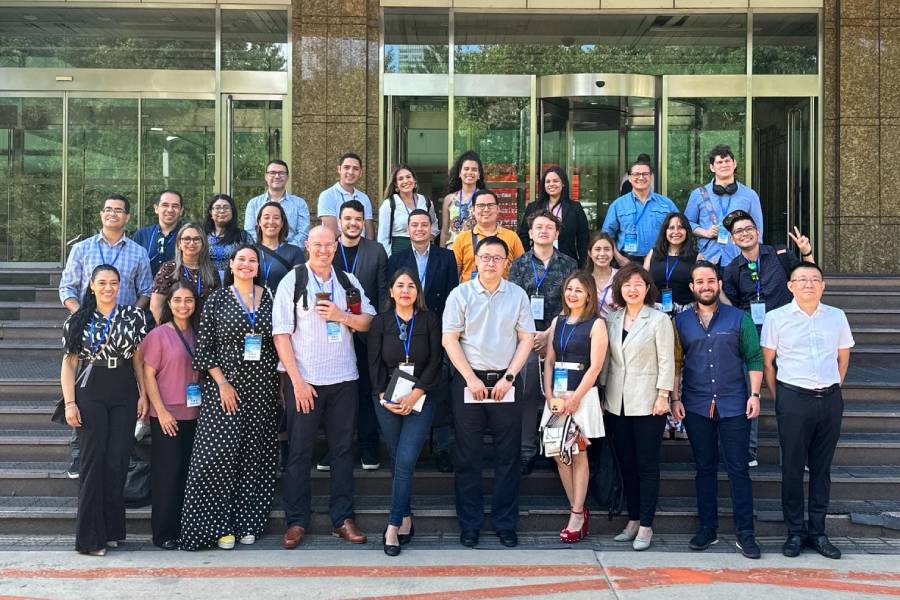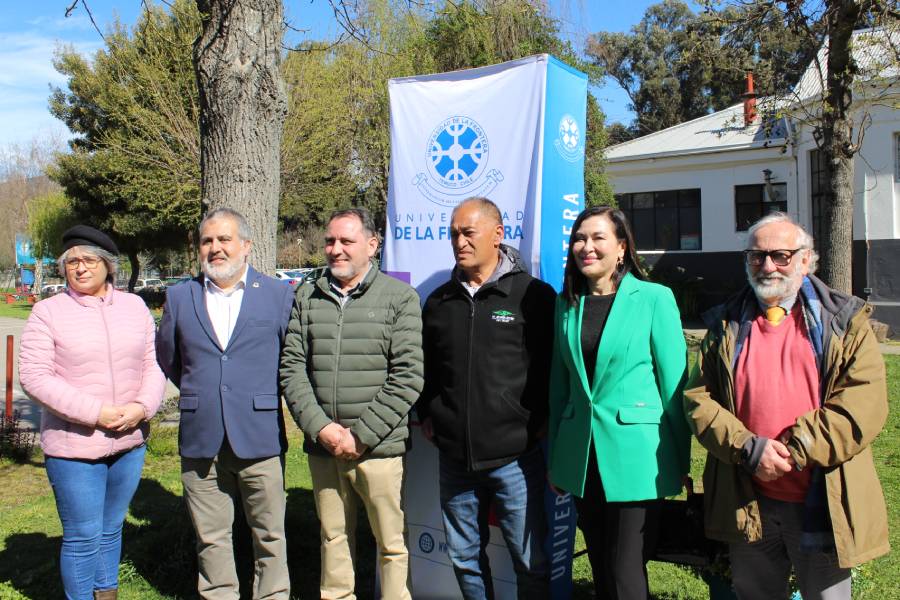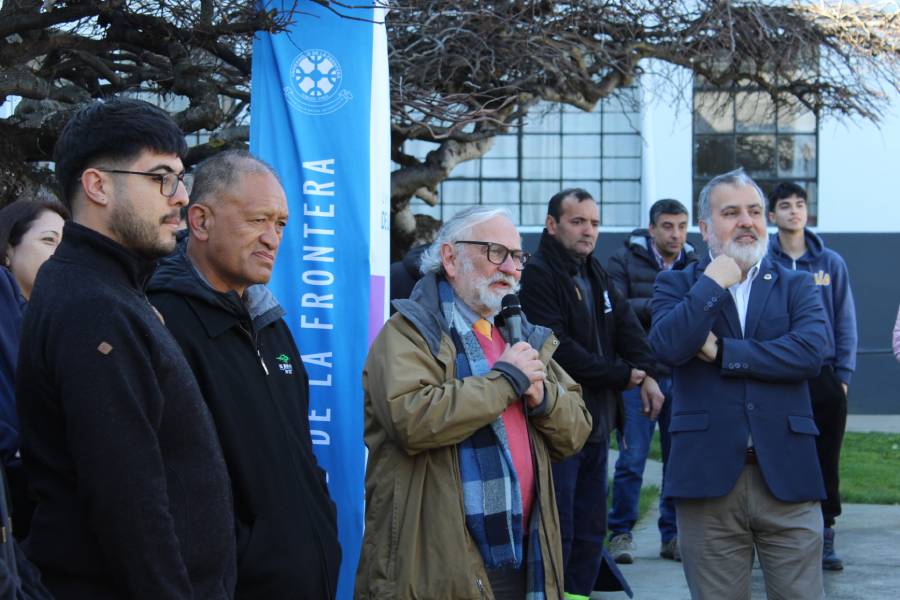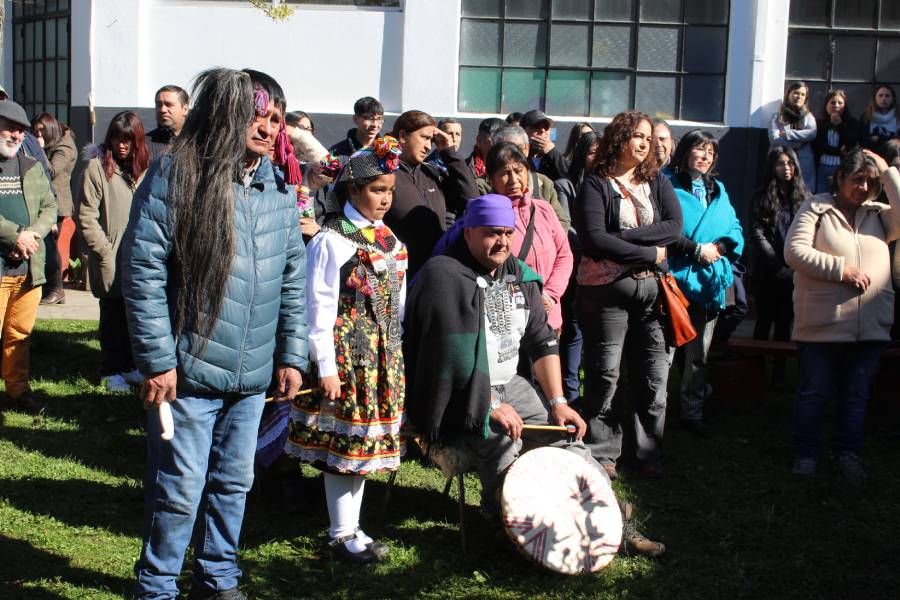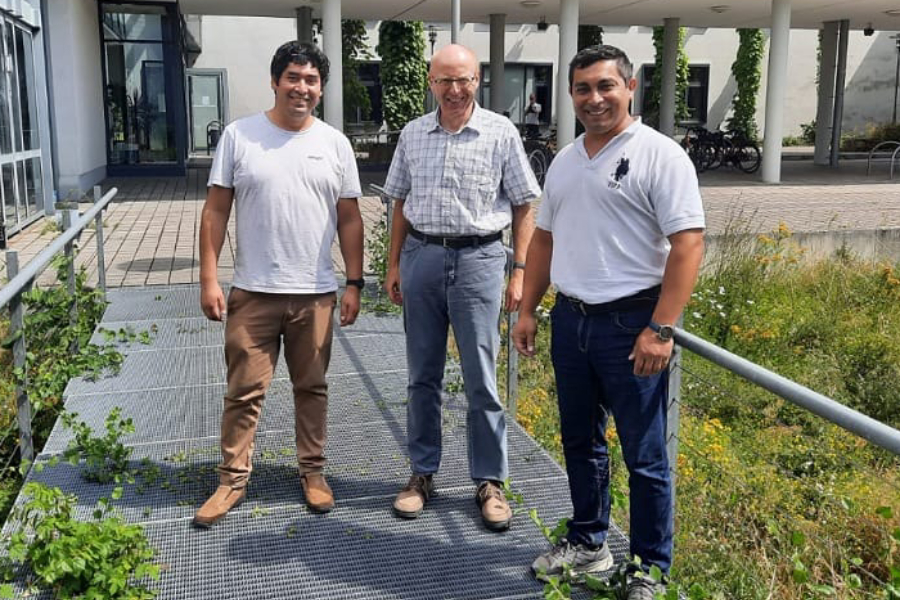|
“Chilean Scientific Production cited by Public Policy Documents” is the name of the report published by the prestigious publisher Elsevier, in which UFRO is ranked fifth among the universities with the highest social impact through their research. |
The SciVal platform carried out a detailed analysis of the performance of Chilean scientific productivity and its impact on public policies at the international level, based on data from 25,000 institutions in 230 countries. The report states that public policy documents from 115 organizations in 28 countries mentioned Chilean research papers in 2022. The Ranking specifies that 113 out of 178 documents correspond to publications in open access journals and 92 of them have less than 10 authors. Among these documents, 128 are scientific articles. It is also worth mentioning that 73% of these papers are part of the 10% of the most cited publications worldwide. This is where Universidad de La Frontera (UFRO) achieved fifth place in Chile, with the most scientific publications cited in international public policies. According to Dr. Rodrigo Navia Diez, the vice-rector for Research and Graduate Studies of UFRO, this is a very important achievement, since it reflects the impact of the work developed at UFRO. “The first thing I want to point out is that this is a global ranking with Chilean universities. That means that our research is recognized internationally. According to this, in average 4% of our published papers are mentioned in public policy documents around the globe, and in different fields of knowledge,” he explained. Among the fields of knowledge measured by the ranking, medicine stands out as the most cited field with 43%, followed by social sciences with 24.8% and environmental sciences with 20.4%. “This fifth place shows that we are a university with a high-level scientific production,” added the vice-rector. In this context, he also explained that the main actions carried out to strengthen the fields of research, innovation, and graduate studies at UFRO is the support of new researchers who develop lines of research with a global scope and social impact. The report specifies that the analysed Chilean universities published more than 500 documents in Scopus-indexed journals over the last five years (2018-2022), where UFRO stands out with 100 documents.
Written by: Vice-rectorate for Research and Graduate Studies |
|
High school students and graduates from 110 schools participated in more than 140 activities to get to know the university, its campus, its programs, and all it has to offer. |
This year, Universidad de La Frontera (UFRO) received about eight thousand high school students and graduates from 110 schools from the Araucanía Region, Bio Bío Region, and Los Ríos Region at the Open House UFRO 2023. Activities organized by each of the 48 study programs, interactive presentations of the cultural and sports offer, guided tours, student development activities, live music, food trucks, and much more awaited the participants at the event, which was organized by UFROrienta, to show the high school students what it is like to study at UFRO. Early in the morning, the buses from different schools started to arrive at UFROs Aula Magna, where the students could register for the day and start to participate in the 140 activities that were easy to access, thanks to the maps, programs, and schedules the students received. To make it easier for the students to choose their future study program, they were able to participate in activities, such as surgical simulations or interactive physics experiments, organized by the different study programs of UFRO. Paula Hidalgo Sánchez, the Coordinator for Program Promotion and Dissemination commented: “It was a great experience! What caught the attention of the students was the diversity of activities and that they were able to actively participate. We are very grateful for the efforts of our faculties, study programs, sports teams, our teams of outreach and community engagement, the library, student development, DIFEM, student associations, our artistic and cultural groups, and everybody who contributed to this event that allowed to really get to know our university.” According to Pamela Ibarra, the Vice-rector for Undergraduate Affairs, the event was a complete success. “In this year’s version of UFROs Open House, we had many more participants than last year. We want to thank everybody involved in this event for their efforts and dedication – all teams, units, faculties, and the university community in general – who made this massive event a huge success,” she commented. EXPERIENCES
 Escrito por: Dirección de Comunicaciones Escrito por: Dirección de Comunicaciones |
|
Pamela Carrasco of Universidad de La Frontera obtained a scholarship to get to know the current challenges of journalism, together with 30 other professionals from Chile, Colombia, Costa Rica, Cuba, Panama, the Dominican Republic, Venezuela, and Uruguay. |
The professional journalist Pamela Carrasco Salas, of the Communications Office of Universidad de La Frontera (UFRO), received a scholarship from the Chinese National Radio and Television Administration (NRTA) to participate in the Seminar for Latin American Journalists, through the Chilean Agency for International Cooperation for Development (AGCID) and the Embassy of China in Chile. According to the professional who obtained this scholarship to get to know the current challenges of journalism together with 30 other professionals from Chile, Colombia, Costa Rica, Cuba, Panama, the Dominican Republic, Venezuela, and Uruguay, the connections with Chinese institutions are more evident than ever, despite the language and time difference and the extreme distance between South America and Asia. The seminar included numerous activities related to the development of communications, for which the participants travelled to Beijing and Shenyang, and visited media companies, as well as other companies and successful economic and social institutions. “When we talk about the internationalisation of our university, we have to expand our horizons, break down barriers, find our spaces, and act for more cultural understanding,” explained Pamela Carrasco. CHINA 5G “China’s advances in innovation and technology are really remarkable, not only because of the satellite buses’ real-time transmission, the 5G network in all provinces, or the 8K resolution. They are also a great example regarding the creation of content for all kinds of audiences and segments: children, adolescents, and senior citizens are not left out in the range of programmes and contents, and that is a good thing,” she affirmed. The offer of the China Central Television (CCTV) comprises 20 national and international channels, and special economy, culture, and sports channels, among others. The use of new technologies in the traditional industry is a great source of opportunities. PARTNERSHIPS WITH UFRO Universidad de La Frontera has three cooperation agreements with Chinese universities, the University of Jinan, Zhejiang University of Science and Technology, and the Communication University of China, which is UFRO’s counterpart of the Confucius Institute, one of the main bodies for the dissemination of Chinese culture in the world. According to the journalist Pamela Carrasco, the course allowed her to learn from professors of the Communication University of China and about fields of great interest, such as media development and exchange, cooperation between Chinese and Latin American media, media literacy in the information age, constructive journalism at the service of global issues, and content production and innovation in times of media convergence. “The cooperation with these teachers and also with former diplomats was a very enriching experience, also because of what it means to stop looking through the eyes of a Western country and to appreciate how this Asian country has approached the development of its television, radio and digital media industry, with a considerable international expansion,” she explained.
Written and translated by: UFRO Communications Office
|
|
The Māori delegation consisted of eight tourism entrepreneurs, ancestral leaders, and educational experts, who visited the Angol Campus of Universidad de La Frontera for an intercultural summit. |
Within the framework of the World Tourism Day, the Angol Campus of Universidad de La Frontera (UFRO) received the Māori delegation, which consisted of eight Māori leaders, who came for this historical visit to promote the understanding and cooperation between indigenous cultures: the Māori people from New Zealand and the Mapuche people from Chile. The summit started with a “Llellipún”, which is an ancestral ceremony in the Mapuche culture. It was led by the Mapuche leader (“machi” in the Mapuche language Mapuzungun) Marcos Millapi of the Chacaico community in Angol. This symbolically and spiritually rich ceremony served as a cultural bridge that connected the Māori community with the Mapuche community and the other attendees of the event. At the same time, the visitors performed the traditional “Pōwhiri”, a Māori welcome ceremony, which is a symbol of peace, respect, and mutual acknowledgement. At the event, it was also a sign of deep gratitude to the Mapuche community of Chacaico and the other attendees of the ceremony on the Angol Campus of UFRO. The Māori leader and tourism entrepreneur John Tapiata commented: “This gathering was a unique experience that reminds us of our home, since we respect our land and ancestors in New Zealand the same way as the Mapuche people here in Chile. We understand and see that our ancestors are connected with them and they are very happy with this gathering in Angol”. After the ceremonies, they got together for two meetings, organized by Angol Campus, the International Affairs Office, and the Department of Education of Universidad de La Frontera, in cooperation with the Malleco Chamber of Tourism. During these meetings, they emphasized the importance of this visit for the promotion of intercultural understanding and the cooperation in the fields of tourism and education. KNOWLEDGE EXCHANGE The first meeting took place with the Māori leaders and representatives of the local tourism industry, where they explored the cultural influence of the Māori and their experience in the field of tourism. They also discussed collaboration opportunities and shared ideas on how to promote and respect different cultures in the context of tourism. In the second meeting, the local community had the opportunity to learn more about the influence of the Māori people in the field of education. Therefore, the Maori leaders shared their experiences regarding the promotion of indigenous culture and education in New Zealand with the participating students and teachers from different schools in Angol, through a fruitful dialogue on how to strengthen the cultural identity through education. Sergio Bravo Pino, the director of the Angol Campus of Universidad de La Frontera, was honoured by the visit of the Māori delegation. “They came here to show us their experience regarding their educational system and how they approach tourism in their country, which is something that might be useful for the province of Malleco as well. We can really learn from them during this visit”, he commented. “It was a very emotional and meaningful day, and we are very pleased with the invitation of Universidad de La Frontera, who provided this space for cultural exchange in terms of tourism and education. Meetings like this allow us to learn from the experiences of other cultures and traditions”, explained Katia Guzmán Geissbühler, the director for Outreach and Community Engagement of the commune of Angol. During their visit, the Māori delegation also visited the Mapuche community of Chacaico and the Historical Museum Dillman S. Bullock of the commune of Angol, where they were able to immerse in the ancestral, cultural, and agricultural history of the commune. Written and translated by: UFRO Communications Office
|
|
Ph.D. student of Universidad de La Frontera carried out internship at Synthetic Organic Chemistry Group of University of Potsdam |
The student Víctor Marín Mosi, of the Doctoral Programme in Science with specialisation in Applied Cellular and Molecular Biology of Universidad de La Frontera (UFRO), carried out an internship at the University of Potsdam in Germany. During his stay, he joined the Synthetic Organic Chemistry Group, led by the academic Bernd Schmidt, to deepen his knowledge in the search for natural compounds with neuroprotective effects. “The aim of my internship was to elucidate the molecular structures of drimane sesquiterpenes isolated from Drimys Winteri (or Canelo tree), as part of the search for new bioactive compounds with protective effects against neuroinflammatory processes underlying neurodegenerative diseases such as Alzheimer’s and Parkinson’s,” explained Víctor Marín Mosi. The student added that his internship at the University of Potsdam was a central part of his doctoral thesis, which involves the search for natural compounds with neuroprotective effects. In addition, his stay allowed him to learn more about molecular determination methods, such as nuclear magnetic resonance spectroscopy (NMR) and X-ray diffraction (XRD), and about the chemical synthesis of new molecular derivatives, which allow conclusions based on the relation between structure and function. According to Víctor Marín, it is very important to interact with international research groups, since these partnerships undoubtedly strengthen the cooperation of UFRO with the rest of the world, and in addition, the professional development of the students when they participate in these internships abroad.
Written by: Doctorate in Science with specialisation in Cellular and Molecular Biology |





